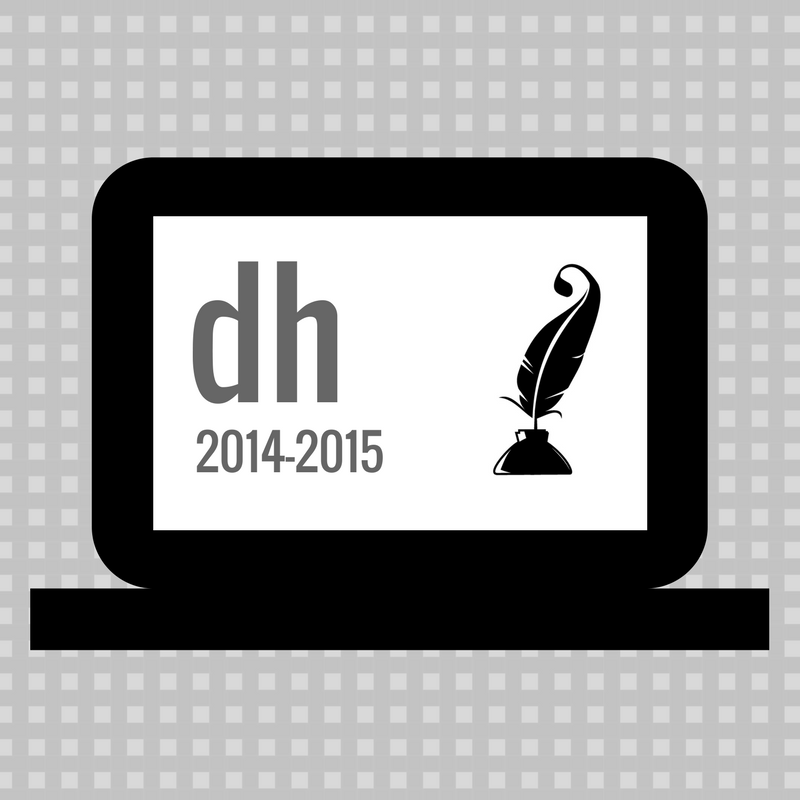During the Fall term the Seton Hall Digital Humanities Committee hosted Dr. Matt Gold, Assistant of English and Digital Humanities from City Tech and The Graduate Center, CUNY. Dr. Gold presented to a diverse group of professors, librarians, and instructional designers on the ins and outs of grant writing. The resources discussed have been compiled for collaboration and open, online access.
Starting with grant basics the key message Dr. Gold had was to COLLABORATE. Grants are naturally team-based projects as there is a need for different skill sets and strengths to build the project. PARTICIPATE in DH communities such as the DH Committee on campus, DH Commons, DH Now, mailing lists or SIGs are all ways to start learning about funding opportunities and the types of projects out there.
When it comes to finding funding Dr. Gold emphasized the need to EXPLORE. There is a large landscape of funding opportunities and it is important to explore all of them. For example, the National Endowment of the Humanities (NEH) has a specific Office of Digital Humanities that has several grant opportunities, but explore the other divisions of NEH such as the Division of Education Programs or Division of Preservation and Access will also yield available grants to apply to. The funding opportunity does not have to be specifically for DH, look at all opportunities and think about how your project is related to the grant opportunity and how it (the grant) can be re-purposed to get to what you want to do.
As you explore funding opportunities, JOIN in the conversation around Digital Humanities. Sign up for mailing lists. Is there a SIG with your scholarly organization related to Digital Humanities that you can join? Being a part of conversation is also about giving back to the community and volunteering for DH projects. There are a number of crowd-sourced projects to get involved with. The Digital Humanities journal DH Now looks for volunteers to help curate the DH information out there and make recommendations on what information is posted to their blog. DH Commons is a website built for collaboration and a way to search for ways to get involved.
When developing a project idea, don’t be afraid to build on other ideas or grants. Dr. Gold provided two examples of grant funded DH projects that were built on earlier DH projects:
- Neatline built on Omeka
- Paper Machines built on Zotero
Dr. Gold breaks down the process of grant writing into a series of simple Do’s and Don’ts.
- DO Read the grant guidelines, early and often.
- DO Work with a team and ask for help when outside input is needed, i.e., budgets, technical specs.
- DO Ask for Letters of Support or Commitment from organizations.
- DON’T write in jargon-y language. DO write for an audience of educated, non-specialists.
- DON’T wait until the last day to submit the proposal.
- DO send a version to the funding agency for feedback.
- DO include a researched “Environmental Scan” – similar to a lit review but gives an overview of the competing projects/landscape and how your project differs and will address an open need or problem.
- DO include a technical appendix if you have wireframes, a list of languages that will be used, or data plans available.
After submitting the grant proposal you will have one of two tasks:
Revise a rejected proposal – take heart, people often apply for grants more than once and revising and resubmission is a part of the process. Ask the reviewing committee for feedback then REVISE and RESUBMIT.
Once your grant proposal gets funding you then are presented with the task of running a grant-funded project. Parting tips offered by Dr. Gold include:
- Schedule regular meetings
- Staff your team asap
- Create a collaborate work space
- Create logos and a project identity
- Build partnerships
- Work with campus communications
- Report to funders – for this process you will want to enable analytics on your website to include with your reports
- Continue to think of next steps, look for secondary funding opportunities to expand or continue the project once the original grant has ended
